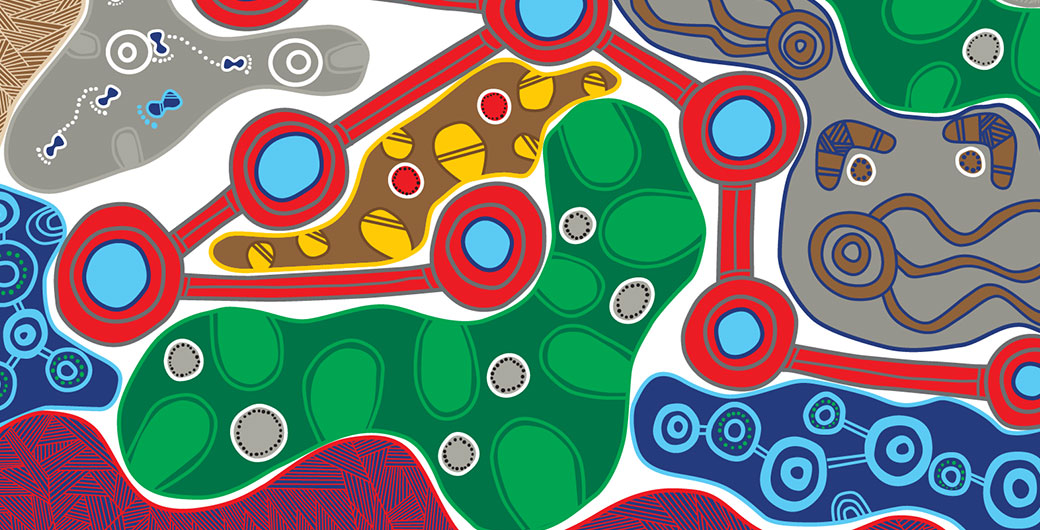Free session: Starting your journey to working with First Nations
10 August 2023
● News and media
We are in a time of change in the way governments work with First Nations communities – but many public servants feel they lack the tools and understanding to be part of it.
As well as debate around the Voice and Treaty, we have recently seen the Productivity Commission’s first report of its three-yearly review of the National Agreement on Closing the Gap and its Priority Reforms.
The National Agreement will drive First Nations policy for years to come and it is vital that all agencies and public servants incorporate its principles into their work, most notably the Four Priority Reforms: Formal Partnerships and Shared Decision-Making, Building the Community-Controlled Sector, Transforming Government Organisations, and Shared Access to Data and Information at the Regional Level.
To help lift understanding across the public sector the Australia and New Zealand School of Government (ANZSOG) is offering a free one-hour session on First Nations policy – ‘Starting your journey to working with First Nations‘ – on 21 August presented by Geoff Richardson PSM, chief executive of First Nations Development Services, and Professor Catherine Althaus, to help public servants begin their journey of understanding of how to work in genuine partnership with First Nations.
Geoff and Catherine will also be presenting the inaugural Working with First Nations: Delivering on the Priority Reforms program to be taught in six online sessions in November which will offer an in-depth exploration of the skills required to change the approach to First Nations policy-making and give participants practical strategies they can use to drive immediate change in their own organisations.
The free introductory session will help public leaders begin to understand where we as a nation are starting from when it comes to First Nations policy, why previous efforts to Close the Gap have failed and how public servants at all levels can contribute to meaningful change.
‘Starting your journey to working with First Nations‘ will be held on 21 August from 1-2pm AEST. While it is free, participants will need to register in advance to access the session.
The session will be online and will have some opportunities for interaction between speakers and participants.
Upon completion of the session participants will have begun their journey of understanding and will:
- Have a basic understanding of the importance to all public servants of the National Agreement on Closing the Gap and its Priority Reforms:
- Formal Partnerships and Shared Decision-Making
- Building the Community-Controlled Sector
- Transforming Government Organisations
- Shared Access to Data and Information at the Regional Level
- Have an understanding of recent developments and debates in Indigenous policy and how they will affect the work of government
- Be more aware of the capabilities required to work with First Nations including cultural responsiveness, engagement, co-design and co-production
- Have an understanding of the perspectives and cultures of the Aboriginal and Torres Strait Islander people and how they can contribute to contemporary society.
- Know why it is important to build genuine partnerships, with shared decision-making, between governments and First Nations people, organisations, and communities
Professor Althaus said that the course shows the value of including First Nations knowledge and perspectives in policy and implementation.
“You can’t do what you don’t know. The first element is being able to ensure that everyone is aware of what we need to do, combat the ignorance and build that knowledge.”
“The next element is about purpose and motivation – to throw out the challenge to say that we need to move the dial. The priority reforms have been shaped by First Nations people, so we need to start doing it, the directions are clear, and the priorities are clear.”
“I hope that this session will give participants a sense of the challenge ahead, but also an understanding that progress is possible and that all public servants can be part of the change we need.”
Mr Richardson said that to implement the National Agreement, which was signed in 2020 as the second iteration of Closing the Gap, there needed to be structural changes at all levels around how governments and public servants work with First Nations people and their communities.
“From my experience, Priority Reform Three – Transforming Government Organisations, will be the hardest of the Four Priorities reforms to achieve. We still see governments operating in silos and applying reductionist approaches to complex challenges, where the complexity is reduced to a series of manageable parts that ignore the interdependencies between issues,” he said.
“The problem with silos, is that even when you support or deliver a quality body of work, it is often rendered unsustainable because other critical interdependencies are not being addressed.”
Mr Richardson said that the National Agreement focused on two kinds of partnerships – place-based partnerships and policy partnerships. Implementing these will require a major shift in the power differential because, at the moment, the public sector has all the decision-making power.
“There are two modalities of government – service delivery and development – and they need to work together. The first delivers the necessary services, but the second focuses on strengthening capability and agency within communities, through the design and delivery of projects and initiatives,” he said.
These programs are part of ANZSOG’s commitment to lifting the quality of First Nations policy in Australia by encouraging public services to incorporate First Nations perspectives, cultures and knowledges in their work, and build genuine partnerships with communities.
Related news and media
ANZSOG report to change attitudes on Indigenous service delivery
Gallery: ANZSOG Indigenous Public Servant Forum
Indigenous public servants need better career pathways: ANZSOG report
What public servants need to know about the National Agreement on Closing the Gap
First Peoples to All Peoples conference brings public servants, First Nations peoples and academics together in Meanjin Brisbane
First Peoples to All Peoples Conference highlights the voices of First Nations women
